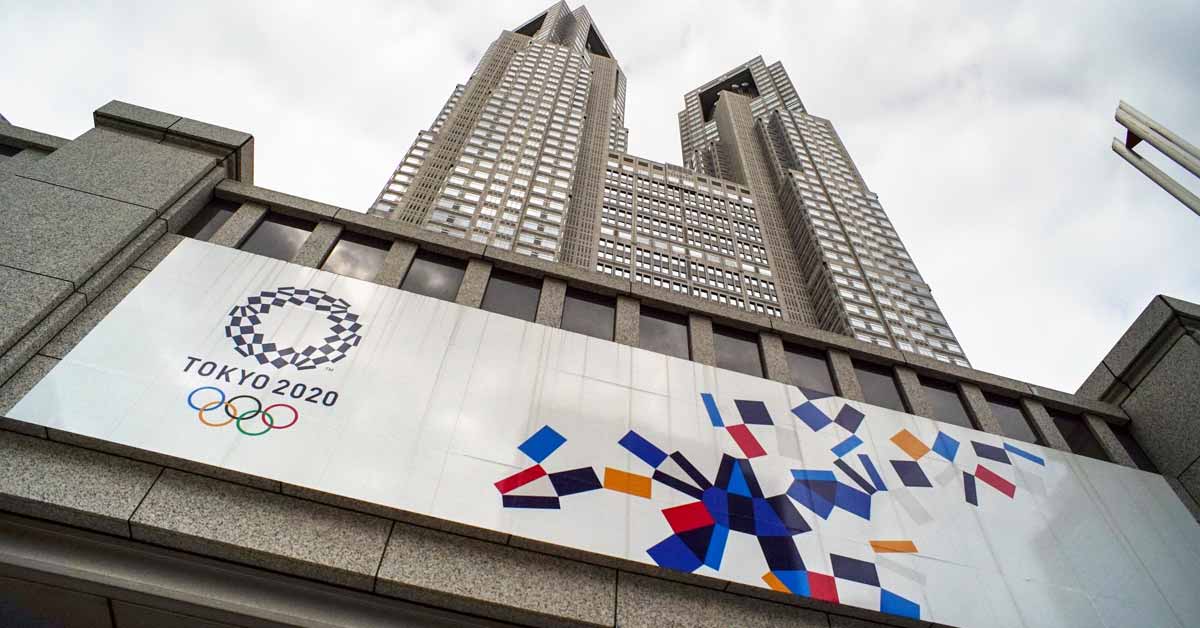Tokyo 2020 president Seiko Hashimoto is "100 percent" certain the Games will go ahead, despite a state of emergency in the city.
When And Where Are The Olympics?
The 2020 Summer Olympic Games are scheduled to take place in the Japanese capital between 23 July and 8 August. The Paralympic Games are between 24 August and 5 September.
They were postponed last year because of COVID.
The Olympics involve 33 competitions and 339 events, held across 42 venues. The Paralympics feature 539 events, across 22 sports, at 21 venues.
Most are in the Greater Tokyo area. Some football games and the marathon are in Sapporo in Hokkaido, which also has a state of emergency.
What's Happening With COVID In Japan?
Japan has had relatively low numbers of COVID cases. There have been about 750,000 cases and 13,200 deaths.
But a new wave of infections began in April and some areas face restrictions until 20 June.
Japan only began vaccinating people in February, later than most other developed nations. So far, only about 3.6 million people – or three percent of the Japanese population – are fully vaccinated. In Tokyo and Osaka, the two cities hit hardest by the surge, authorities hope over-65s will be fully vaccinated by the end of July.
What COVID Measures Are In Place For The Olympics?
Japan's borders are shut to foreigners, so no international fans can travel to the games.
Organisers will wait until after a state of emergency in Tokyo ends on 19 June to decide whether local fans can attend.
International athletes and support staff will be tested before departure and on arrival in Japan.
They won't have to quarantine, but must stay in bubbles and avoid mixing with locals.
Athletes don't have to be vaccinated, though International Olympic Committee (IOC) officials expect around 80 percent will be. Participants will be tested for COVID daily.
Do People In Japan Want The Olympics?
A recent poll in the leading Asahi Shimbun newspaper suggested more than 80 percent of the population want the Games either cancelled or postponed.
Several towns set to host the athletes have reportedly pulled out over fears it could spread COVID and put pressure on the healthcare system.
In May, a doctors' union told the government it was "impossible" to hold the Games, given the pandemic – and the Asahi Shimbun called for them to be cancelled.
What Have Athletes' Representatives Said?
A number of bodies and experts have expressed concern.
The World Players Association – which represents 85,000 athletes in over 60 countries – said the IOC must do more to ensure athletes' safety, with stricter physical distancing and more rigorous testing.
Japanese athletes have largely kept a low profile, but the country's biggest sports star, tennis champion Naomi Osaka, said there should be a debate.
What Have Other Countries Said About Taking Part?
No major countries have spoken out against the Games.
The United States (US) issued a travel warning for Japan following the surge, but officials say they're confident their athletes will take part.
Team GB remains "fully committed to sending our full team to the Tokyo Olympic Games".
Chinese President Xi Jinping has also pledged his support. China is due to host the next Winter Games in February 2022.
Could The Olympics Be Cancelled?
Yes, but normally only under very exceptional circumstances like war or civil disorder.
The contract between the IOC and host city Tokyo makes it clear only the IOC can cancel the event.
The IOC is thought to make around 70 percent of its money from broadcast rights, and 18 percent from sponsorship. If the Games don't go ahead, it could severely damage its finances, and the future of the Olympics.
Given that the IOC has repeatedly insisted the Games can go ahead safely, even under a state of emergency, it seems there's little chance it will pull the plug. If Tokyo was to break the contract and cancel, the risks and losses would fall on the Japanese side.
The budget for Tokyo 2020 was set at US$12.6 billion, although it's been reported that the actual cost could be double that.
Even though the Olympics are heavily insured, losses would still be high.
Organisers are standing strong. Ms Hashimoto said: "I am very confident we will have these Games. We are doing everything we can." – BBC
